‘I’m living in hell...’: Mum’s plea for Aussie kids stranded in Beirut
The mother of three Australian children caught in the horror of the Beirut explosion says she is ‘living a nightmare’ and desperately pleading with the government for assistance as the full scale of devastation is laid bare.
NSW
Don't miss out on the headlines from NSW. Followed categories will be added to My News.
The mother of three Australian children stranded in Beirut in the aftermath of the devastating explosion says she feels like she is “living a nightmare” and desperate to leave as a humanitarian crisis unfolds in the disaster-struck city.
Syrian refugee Lama Abdulattif and her three Australian children are among an estimated 5000 Australians caught in the carnage after a terrifying blast swept through the city on Tuesday.
The 39-year-old, who is the sole caretaker of two two-year-olds and a six-year-old girl — all Australian citizens by their now estranged father — is pleading with the government for her children to be repatriated.
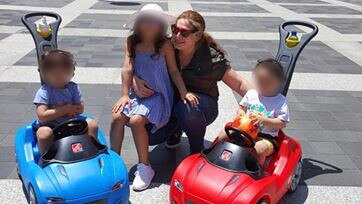
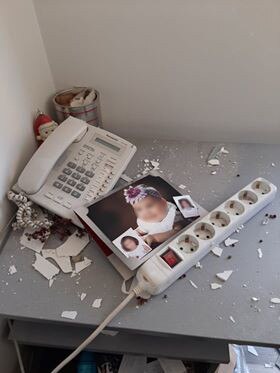
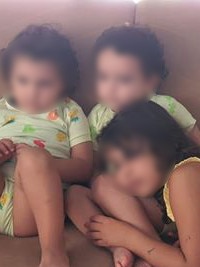
The credit manager was at home — just metres from the Australian Embassy — when a nuclear-scale explosion sent seismic waves through the city so powerful they were felt in Cyprus more than 240km away.
“The flat was shaking left and right and the windows were crushed and the kitchen crumbled. My daughter was bleeding from her nose because she was so scared. I tried to ask for help but no one answered,” she told The Daily Telegraph.
The shock of the blast severely damaged her apartment block, shattering windows and interiors and leaving her children fearing for their lives.
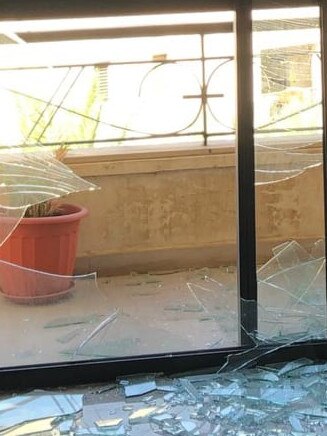
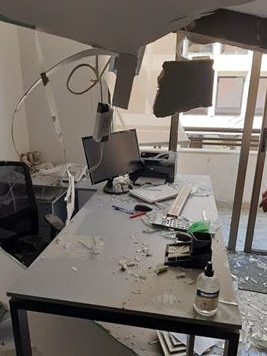
Her six-year-old daughter “was trembling with terror” and fainted from shock as the force of the Hiroshima-style blast brought the city to its knees.
“She was alone in her room when she felt an earthquake, I don’t know how I got her out before the window glass broke over her head... thank God.”
“I looked out of the window and saw cars crushed, people bleeding and running in the street and ambulances everywhere.”
Ms Abdulattif now fears for her life and is worried sick about her children, who cannot sleep and eat because they are so terrified from the blast, which has been described as one of the world’s worst-ever peacetime explosions.
“It’s like living a nightmare. After this I don’t think it’s safe.
“Today I asked my daughter, ‘How do you feel?’ she said, ‘I feel scared.’ ”
“One of the twins, he isn’t eating and not speaking and when I try to switch off the light my daughter says, ‘Please don’t, stay beside me.’”
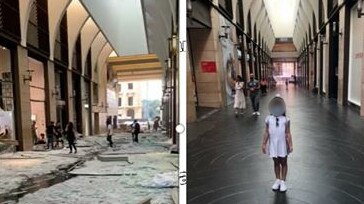
There are chaotic scenes across Beirut with power still out in parts, buildings turned to rubble and the sound of sirens echoing through the streets, she said.
Ms Abdulatiff fears for her children with the looming food shortage as the city’s port was a critical hub for food imports.
“We are scared. I don’t feel safe for the future. I’m looking for a better future, a safe place for my children.”
The mother-of-three says she has “lost all her safety” in the disaster and is desperate to get her children to Australia.
“They say to me all the time ‘Mum, we want to go home? Home is Australia.
“They are Australian and I think they have a right to live and grow up in Australia.”
The children’s Australian father is now estranged and Ms Abdulatiff is the sole carer.
The Syrian national has contacted Australian Ambassador to Lebanon Rebekah Grindlay but is yet to receive a response.
“I feel like I’m living in hell. Everyday my daughter says, ‘Mum, you are sad.’”
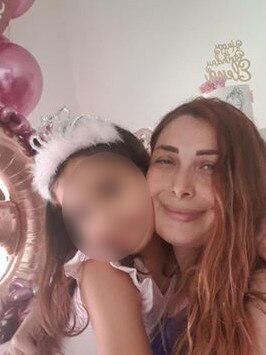
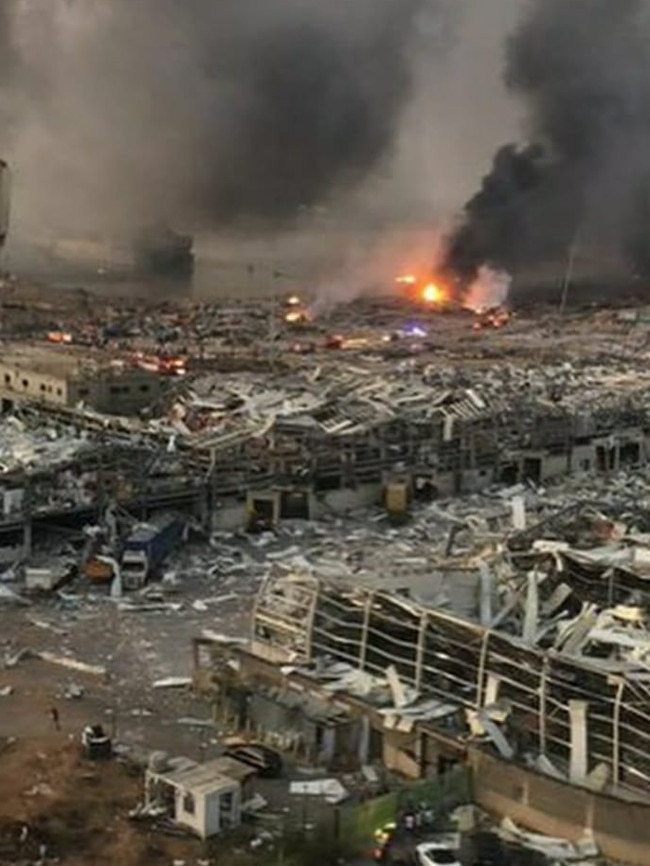
For years, Ms Abdulatiff has contacted the Australian Embassy in Lebanon to have her children and herself taken to Australia, but her application has been pushed back because she is not a citizen.
“They say, ‘Sorry, we can’t do anything for you. When the children are 18-years-old they can move to Australia.
“I said we are living in a terrible situation, how can I protect my children from the war in Syria or Lebanon?
“This is my right. To protect my children and raise them in a good way and let them grow up in safety. I don’t want children to grow in society full of war, trouble and disaster.”
Even before the crisis, the city was crumbling under the pressure of an economic crisis, the pandemic and political unrest.
Her six-year-old daughter has repeatedly been pulled from school because of the ongoing revolution, worsened by the inability of the school to cope with the unfolding health crisis.
“Everyday she asks, will the school open again?’”
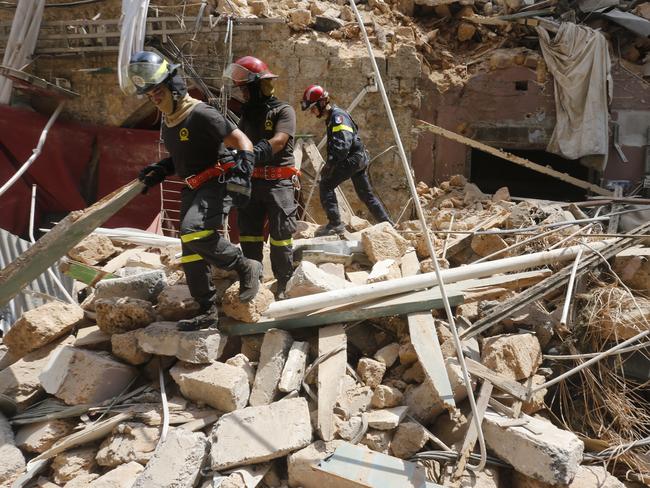
Online classes have stopped due to power outages and it’s been weeks since the school has held classes.
“I’m so afraid, I want my children to be educated, go to university and be strong.”
The Department of Foreign Affairs and Trade was contacted for comment but did not respond.
In a separate statement, a spokesperson said while the full impact of the crisis on Australians is not yet clear, the government is continuing to “make enquiries of local authorities.”
Australian diplomats have visited a number of hospitals in the city but have received “no further” information on fatalities or injuries.
Khaled Alameddine from the Lebanese Moslem Association told The Daily Telegraph he has received a number of calls from panicked families unable to contact their relatives in Beirut.
“We don’t have any answers. There’s a lot of frustration,” he said. “From our side we can’t get any information.
“We’re all in shock, we don’t know who is missing or not missing but the whole Lebanese community is concerned.”
